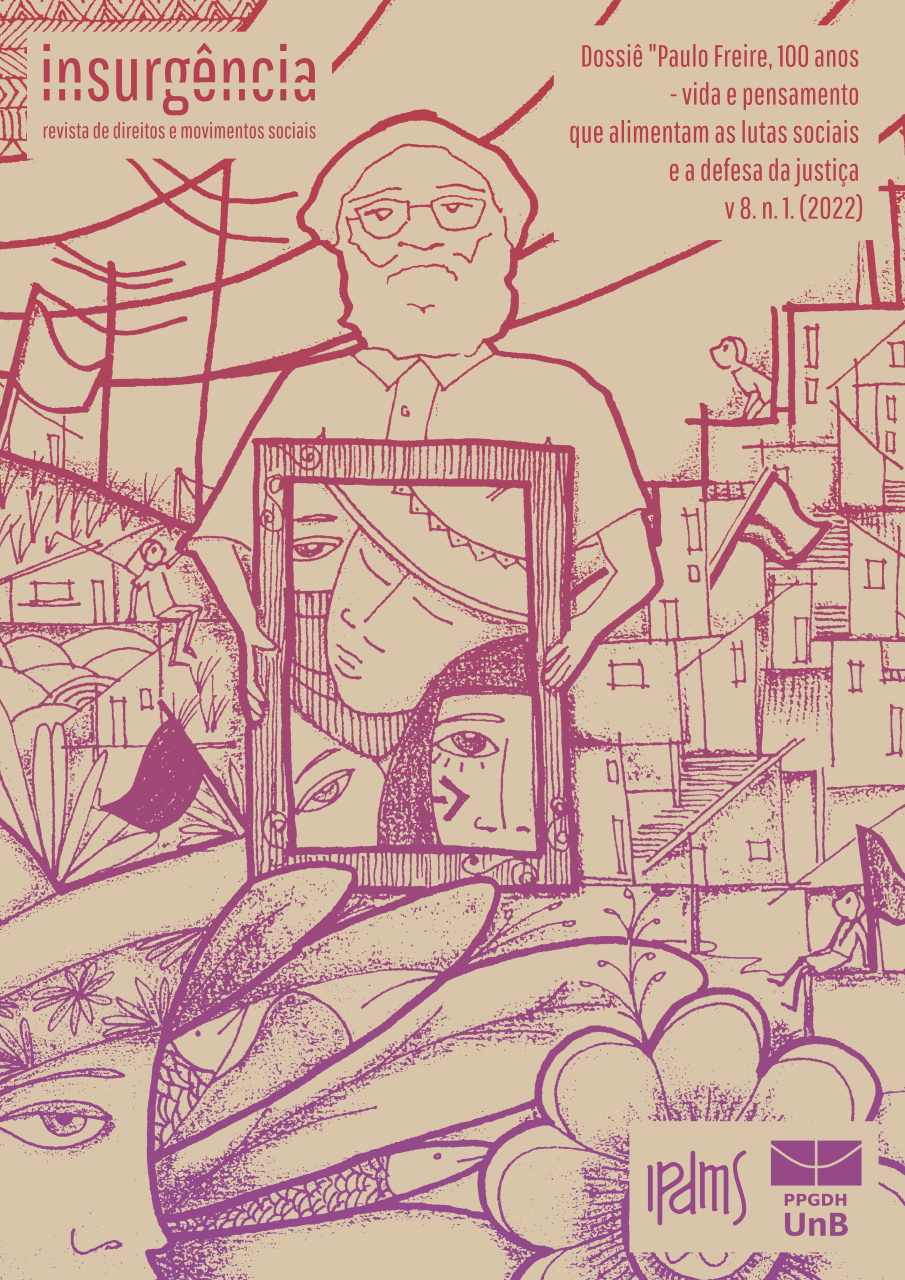Intersecting Freire: bell hooks, inclusive language and dialogue
DOI:
https://doi.org/10.26512/revistainsurgncia.v8i1.40675Keywords:
Paulo freire, bell hooks, linguagem inclusiva, genero, interseccionalidadeAbstract
Following narratives on the conflict between Paulo Freire and U.S. feminists about the language Freire used, this article seeks to bring an additional view on the path chosen by one of them, bell hooks, in her criticism. Loyal to his thesis, analysing and admitting to the mistake of minimizing the impact of language in his Pedagogy of hope after feminist criticism, Freire begins to use inclusive language. Bell hooks’s precious dialogue, however, goes beyond criticism and fixing. In her analysis of the situation, she explains in her Teaching to transgress, in a delicate manner, the fruits yielded post-criticism. It is our aim to observe that bridge built in education for human rights, which considers social, gender, class, race and sexuality struggles from an intersectional perspective, between a male and a female masters educating themselves mutually.
References
FLEURI, Reinaldo M.; COSTA, Marisa V. Travessia: questões e perspectivas emergentes na pesquisa em educação popular. Ijuí: Unijuí, 2001.
FLEURI, Reinaldo M.; MURACA, Mariateresa. Um enfoque feminista da perspectiva político-pedagógica Freiriana. In: STRECK, Danilo R.; ESTEBAN, Maria Teresa (orgs.). Educação popular: lugar de construção social coletiva. Petrópolis: Vozes, 2013, v. 1, p. 96-109.
FREIRE, Paulo. Pedagogia da esperança. São Paulo: Paz e Terra, 2004.
FREIRE, Paulo. Pedagogia do oprimido, 17. ed, Rio de Janeiro: Paz e Terra, 1987.
GADOTTI, Moacir. Paulo Freire e a educação popular. 2018. Proposta 113 Fase. Disponível em: <https://is.gd/Div0232> ou <https://sindacs.org.br/novo/wp-content/uploads/2018/06/Paulo-Freire-e-a-Educa%C3%A7%C3%A3o-Popular..pdf>. Acesso em 21 out. 2021.
OLIVEIRA, Erika. Ensinando a transgredir: a educação como prática da liberdade. Lutas Sociais, São Paulo, v. 19 n. 34, p. 219-222, jan./jun. 2015. Disponível em <https://revistas.pucsp.br/index.php/ls/article/download/25769/pdf>. Acesso em 7 nov. 2021.
WERNECK, Jurema. Políticas públicas para as mulheres negras. Passo a passo, defesa, monitoramento, e avaliação de políticas públicas. Rio de Janeiro, Criola, 2010.
Downloads
Published
How to Cite
Issue
Section
License
Copyright (c) 2022 InSURgência: revista de direitos e movimentos sociais [InSURgence: rights and social movements journal]

This work is licensed under a Creative Commons Attribution-NonCommercial-NoDerivatives 4.0 International License.
Creative Commons Atribuição-NãoComercial-SemDerivações 4.0 Internacional.
















